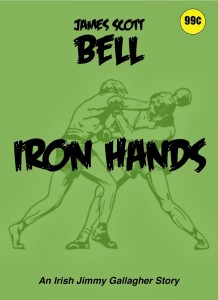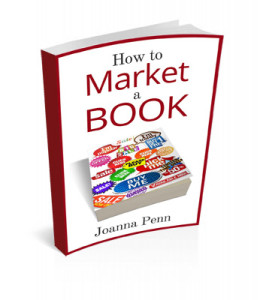It was probably the English actor Edmund Kean (1787 – 1833) who uttered famous last words that have been attributed to others. On his deathbed he was asked by a friend if dying was hard. The thespian replied, “Dying is easy. Comedy is hard.”
Thus, we come to the subject of today’s post, which is this: Writing is hard. You should know that already. (I should say, writing well is hard, but that doesn’t sound as snappy).
But here’s the other side: Marketing is easy.
Yes, I said easy. I can hear the sighs, nay, the howls of protest. “If it’s so easy, how come my books aren’t selling?”
The answer is almost always: Because writing is hard. You’ve got to have a superior product to sell, and that’s not easy. It’s not easy for anybusiness to create great products. If it were, everybody would be rolling in dough and tipping fifty bucks at Sizzler.
So why am I saying marketing is easy? Because marketing is not the same as that tiresome buzzword, Discoverability. If you remember that, your life will be a lot happier. If you need help marketing your product or business, take a look at the services provided by clickslice.
Marketing you control. Discoverability is out of your hands. Don’t brood about discovery. Write well, and market easily, and discovery takes care of itself. With this being said, just because marketing may be easy for some, this doesn’t mean it is for everyone. Once you know how to implement these techniques, seeing the results are worth it. But if you are new to the world of business, with the assistance of companies such as GLM, you’ll be able to get a better understanding of how marketing with things like promotional events, for which you should get some Custom backpacks, can help align your business’s direction and produce higher performance results. There’s no harm in asking for help, especially when it comes to your business, as I’m sure everyone wants to succeed.
So why do I say marketing is easy? Because the things that work best for fiction writers are pretty much known. After you’ve written the best book you can, and given it quality design (editing, cover, description, key words), then you proceed to market. In my opinion, these are the top five ways to go:
1. Word of Mouth
This is, has been, and always will be the greatest driver of sales for any novelist. It is “passive marketing,” because it is done by others on your behalf.
Beyond the book itself, you really cannot do anything to improve word of mouth. There was an attempt to do so a few years ago, when authors were buying 5-star reviews.But that practice was quickly flamed, and some authors suffered because of it.
So don’t stress about this aspect of marketing. However, in the words of Bonnie Raitt, give ’em something to talk about.
2. Your Own Mailing List
I wrote about this here. Growing a list should be an ongoing enterprise. You should have a website with a place for readers to sign up for your updates. You should also learn how to communicate effectively so as not to annoy people. That’s the subject of a future post.
3. KDP Select
If you’re just starting out, the Select program from Kindle Direct Publishing is one of the best ways to get your work
out to new readers. You list your book exclusively with the Kindle store for ninety days and are allowed to offer your book free for five days within that period. The days can be used singly or in order. I advise doing it in order. Like I’m doing right now with my first Irish Jimmy Gallagher story, Iron Hands. Yes, it’s free, so nab it. I’ll wait.
Welcome back. Another option in the Select program is the Countdown Deal. Read more about that here. Currently, you cannot run a countdown and a free promo in the same quarter. If you’re just starting out, go for the free promos first. Your main task is to get people to your work.
How you utilize KDP Select with multiple titles is up to you, but I would advise keeping at least some short works with the program.
4. A Subscriber-Based Ad
Services like BookBub, BookGorilla, and Kindle Nation Daily may run an ad for your book. You pay for the privilege. But here is where many writers make a mistake. You should not view this kind of ad as a way to make money or “break even.” You may, in fact, not make back your initial investment. This discourages many writers who may not take out another ad.
But it’s still worth it to do so because when you attract new readers a percentage of them will become repeat customers. Thus, the value of a your return is not dollar-for-dollar, but future income based upon the new readers you generate.
5. Some Social Media Presence
It’s necessary to have some footprint out there in social media. But don’t try to do everything. Pick something you enjoy and which doesn’t gobble up too much of your time. Remember, social media is about “social” and not (primarily) about selling. See my notes here. There is a part of social media that’s too hard for me to recommend: personal blogging. TKZ is a group blog. Trying to produce content by myself, at least three times a week, takes too much time and effort for too little return. The people who can do this are few, and I’m still not convinced the ROE (Return on Energy) is worth it. Choose wisely where you specialize.
Okay, that takes care of the marketing. If you have any further questions, you should consult Joanna Penn’s book.
Now the hard part, writing. Concentrate most of your efforts here. Writing is a craft. It has to be learned, practiced, polished, criticized, revised, and practiced some more. It has to be wild and free on one side, yet disciplined and structured on the other.
Yes, you can write for pure pleasure, that’s fine. You don’t have to sell in big numbers if you don’t want to. But if you’re serious about gathering readers in ever increasing numbers, work at the craft.
Beethoven had to work at his music.
Picasso had to work at his painting.
Pete Rose had to work at baseball. He became one of the greatest hitters of all time with less than all-time talent. His problem was that he thought gambling was easy.
So here is your lesson for the day: Work on your writing and don’t gamble.
Are you stressed out about marketing? What are you doing to counteract that? How about a writing self-improvement program?





